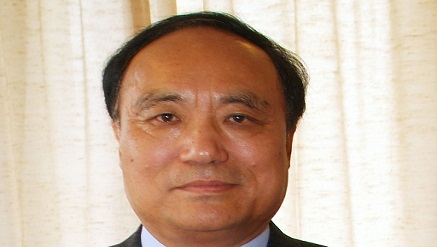Telecom
ITU Marks 150th Anniversary with Global Celebrations

ITU celebrated its 150th anniversary on 17 May, marking a long and illustrious history at the cutting edge of communication technologies.
“ITU has earned its global reputation for resilience and relevance,” said United Nations Secretary-General Ban Ki-moon, applauding the agency’s many contributions as the oldest member in the United Nations system.
“Telecommunications – as well as information and communications technology – drive innovation. The digital revolution has transformed our world. New information and communication technologies can help boost the economy and protect the environment.”
“The remarkable history of ITU exemplifies its stellar role in connecting the world to the most advanced and innovative means of communication, from the days of the telegraph to the Internet and mobile broadband, which now allows us to be in touch anytime, anywhere with friends, family, colleagues and even things,” said ITU Secretary-General Houlin Zhao.
“Throughout our 150-year history, we have promoted international cooperation, working to achieve practical solutions to integrate new communications technologies as they develop, spreading their benefits to all.”
ITU was established on 17 May 1865 with the signing of the first International Telegraph Convention in Paris to facilitate the transmission of telegraphy across international borders.
ITU was initially headquartered in Berne and moved to Geneva in 1948, soon after it became a specialized agency of the United Nations in 1947.
Ms Doris Leuthard, Minister of Environment, Transport, Energy and Communications of Switzerland, delivered the keynote address on behalf of the host country.
The ITU 150th anniversary was marked by celebrations in some 50 countries around the world. A special ceremony was held in Paris to mark the signing of the First International Telegraph Convention on 17 May 1865.
A ceremony was also held in Madrid, attended by King Felipe VI of Spain, to commemorate the re-naming of the International Telegraph Union as the International Telecommunication Union in 1932.
Looking towards the future as the leading UN specialized agency for telecommunications and ICT, ITU is focused on driving innovation together with the Union’s 193 Member States and membership of over 700 private sector entities and academic institutions.
A panel discussion focusing on ICTs as drivers of a sustainable future was anchored by BBC correspondent Imogen Foulkes, brought in key thinkers and doers: Philip Walton, COO, BRCK; Luis Von Ahn, CEO & founder, DuoLingo; Gabriela Styf Sjöman, CTO, Telecom Italia Group; Jian Wang, CTO, Alibaba; and Ulf Ewaldsson, CTO, Ericsson.
ITU 150th anniversary Awards
ITU accorded recognition to the Founding Member States that signed the convention in 1865. With the re-drawing of national borders over the years, the original twenty are now represented by sixteen countries: Austria, Belgium, Denmark, France, Germany, Greece, Hungary, Italy, Netherlands, Norway, Portugal, Russian Federation, Spain, Sweden, Switzerland and Turkey. Long-standing industry members were also recognized, including Telecom Italia (hailing back to 1925), Exelis and Telefónica (since 1929); and Sirti (1931).
The ITU 150 Awards were presented to eminent laureates who have contributed to ITU’s work: Martin Cooper, Robert E. Kahn, Mark I. Krivocheev, Ken Sakamura, and Thomas Wiegand. Bill Gates was given special recognition for his contributions and his ongoing work with the Bill & Melinda Gates Foundation.
Martin Cooper is a pioneer in wireless communications and referred to as the ‘father’ of portable cellular telephony. He is an inventor, entrepreneur and futurist who conceived the first portable cellular phone in 1973. Cooper knew then that people needed the freedom that comes from anywhere, anytime telephony.
Robert E. Kahn played a pioneering role in the development of the Internet. Kahn has developed the concept of a digital object architecture to provide a framework for interoperability of heterogeneous information systems and is the co-inventor of Knowbot programmes – mobile software agents in the network environment.
Mark Krivocheev is best known for his pioneering work in forging a world television digital standard and for HDTV standards, which have made it possible for us to receive high quality sound and picture in our homes.
Ken Sakamura designed the TRON open computer system architecture, which will be useful for ubiquitous computing of the future, and helped produce a series of Recommendations, including ITU-T H.642 “Multimedia information access triggered by tag-based identification”, which is a critical element as we move to the age of the Internet of Things and Big Data.
Thomas Wiegand has contributed significantly towards the standardization for multimedia and co-chaired for the development of the ITU-T H.264/MPEG-AVC video coding standard, which facilitates video streaming on mobile devices and was recognized with a Primetime Emmy Award from the Los Angeles-based Academy of Television Arts & Sciences.
Bill Gates, co-founder of Microsoft, led the company that became the worldwide leader in business and personal software, services, and solutions.
As co-chair of the Bill & Melinda Gates Foundation, he shapes and approves grant-making strategies, advocates for the foundation’s issues, and helps set the overall direction of the organization.
Telecom
MTN, Lynk Global Make Africa’s First Satellite-to-Mobile Call

MTN South Africa, in partnership with Lynk Global, has successfully conducted Africa’s first satellite-to-mobile phone call touted as a groundbreaking development.

This historic trial, conducted in Vryburg, North West province, marks a major step toward bridging connectivity gaps in underserved and rural regions across the continent.
The test involved making a voice call using a standard smartphone connected via a low-Earth orbit (LEO) satellite.
This innovative approach eliminates the need for traditional network infrastructure, providing a viable solution for remote areas with limited or no mobile coverage.
According to Charles Molapisi, CEO of MTN South Africa, this initiative aligns with the company’s broader strategy to extend network coverage to hard-to-reach areas.
“This achievement demonstrates our commitment to leveraging cutting-edge technology to ensure connectivity for all, regardless of location,” Molapisi stated.
The trial also assessed SMS capabilities over the LEO satellite connection, proving the technology’s potential for widespread application.
With successful implementation, satellite-to-mobile communication could revolutionise telecommunications in Africa, enabling digital inclusion and economic opportunities in regions previously disconnected from mainstream networks.
This milestone underscores the growing role of satellite technology in Africa’s telecommunications landscape.
By integrating satellite solutions with existing mobile networks, MTN and Lynk Global aim to provide seamless connectivity that overcomes traditional infrastructure challenges.
Telecom
Smart Treasure Investment Team’s Initiatives Eradicate Poverty, Says Aminu

Samson Aminu, also known as Smile, has described the Smart Treasure Investment Team (ST Team) as a transformative force that has empowered its members and significantly contributed to poverty eradication.

Samson Aminu
Aminu, a VIP 9 member of the team, shared his experiences on Friday during the official car presentation ceremony held at the regional office in Lagos. Having recently received a Lexus RX350 and an international vacation from the team, Aminu recounted how the organization has positively changed his life.
“The Smart Treasure Investment Team has really imparted my life positively and changed my status from zero to hero,” he said.
He revealed that his first earnings through the team allowed him to relocate to a new apartment and acquire gadgets. “I’ve purchased various items for myself and my family, and established an operational center in Ilorin,” he added.
The ST Team, according to Aminu, aligns its activities with the United Nations’ 16 Sustainable Development Goals (SDGs), which include youth empowerment, poverty eradication, support for education in rural areas, and community service.
“The ST Team has come to eradicate poverty in Africa and across the globe. We are teaching people how to catch fish by themselves and making them financially stable,” Aminu explained.
He highlighted the organization’s initiatives such as providing allowances to civil servants, feeding the elderly, orphans, and widows, and investing in agriculture to sustain local communities.
“If the ST Team lasts long for another three years, the government would be grateful to this project as it would bring peace and comfort to the society,” Aminu said.
He applauded the leaders of the organization, Dr. Harold and Mentor Tina, for their sincerity, honesty, and dedication to humanity. “I urge the government to support this project, which has brought significant change to Nigeria in just two years,” he said.
Aminu, who has over 15 years of experience in multilevel marketing, commended the team for its exceptional standards and sustainability.
Telecom
15-Year-Old Autistic Artist, Kanye, to Unveil World’s Largest Art Canvas on Autism Awareness Day

Kanyeyachukwu Tagbo-Okeke, affectionately known as Kanye, has become a beacon of inspiration for Nigeria’s youth. The 15-year-old autistic artist is set to unveil what is expected to be the world’s largest art canvas by an individual on April 2, 2025, World Autism Awareness Day, at Eagles Square in Abuja.

Kanye’s journey began at the tender age of two when he first showed a proclivity towards art. Despite facing challenges associated with autism, Kanye has flourished as an artist, earning accolades and the nickname “Young Picasso” for his exceptional abstract paintings.
The young prodigy’s attempt at breaking the Guinness World Record started in November. 2024, as part of the Zeebah Foundation’s ‘Impossibility Is A Myth’ project. This initiative not only showcases Kanye’s extraordinary talent but also aims to raise funds for a state-of-the-art autism resource center in Abuja, highlighting the need for greater support and inclusion for individuals with autism.
Kanye’s story aligns with MTN Nigeria’s recent “Go Make A Difference” (Go M.A.D) campaign, which encourages Nigerians to take bold steps and create positive impacts in their communities. Onyinye Ikenna-Emeka, MTN’s Chief Marketing Officer, emphasised how Kanye embodies the Go M.A.D philosophy: “MTN’s mission is to connect people all over the world. Kanye is connecting art lovers, and people all over the world as well. He is a true icon, breaking barriers and proving that nothing is impossible”.
The unveiling event will be attended by key dignitaries, including FCT Minister Nyesom Wike, and Minister of Arts, Culture, Tourism and the Creative Economy, Hannatu Musawa. This high-profile support underscores the significance of Kanye’s achievement and its potential to inspire change.
Kanye’s father, Tagbo Okeke, stressed that this record attempt goes beyond personal achievement. “We started this awareness campaign to tell parents that no child should be left behind, that they are Fabulous, Autistic and Talented,” he said. The family’s efforts, including opening a gallery in Abuja where art therapy workshops are conducted, demonstrate their commitment to supporting others on the autism spectrum.
As Nigeria’s youth witness Kanye’s remarkable journey, many are inspired to make their own difference, regardless of the challenges they face. Kanye’s story proves that with determination, support, and the right tools – such as those provided by initiatives like MTN’s Go M.A.D campaign – young Nigerians can achieve extraordinary feats and create meaningful change in their communities.
Kanye’s upcoming unveiling of his monumental artwork is not just a personal triumph; it’s a powerful statement about inclusion, perseverance, and the limitless potential of Nigeria’s youth to make a difference.

 Telecom2 days ago
Telecom2 days agoIHS Nigeria Hosts Telecom Industry Stakeholders to Discuss Protection of Critical National Infrastructure in Lagos State

 E-Financial2 days ago
E-Financial2 days agoTitan Trust Bank Selects Oracle FSS for Core and Digital Banking Technology

 General News2 days ago
General News2 days agoNCS to Launch Electronic System for Cash Declarations at Airports

 News2 days ago
News2 days agoSanwo-Olu Hails Jumia for Giant Strides in Growing Nigeria’s E-Commerce Sector

 E-Financial2 days ago
E-Financial2 days agoIMF Appoints Elumelu, Nigerian Businessman to Advisory Council

 Telecom2 days ago
Telecom2 days agoMTN Champs Continental Relays: Over 1,000 Athletes Gear Up for Lagos Showcase

 General News2 days ago
General News2 days agoAquaterra Energy Secures Multi-million-dollar well Intervention Contract with Intrepid Energy in Nigeria

 Telecom9 hours ago
Telecom9 hours agoSmart Treasure Investment Team’s Initiatives Eradicate Poverty, Says Aminu
























